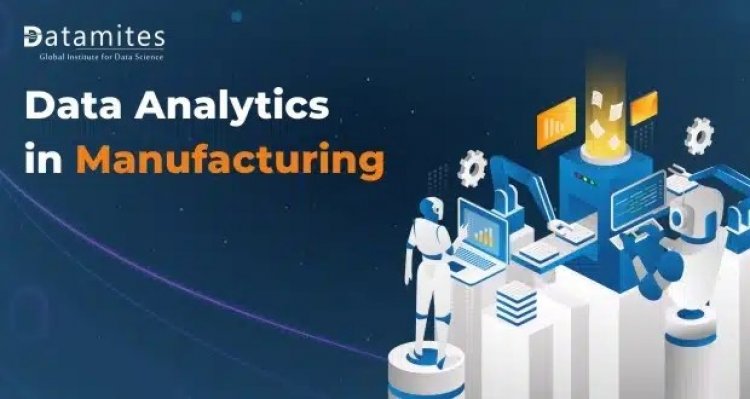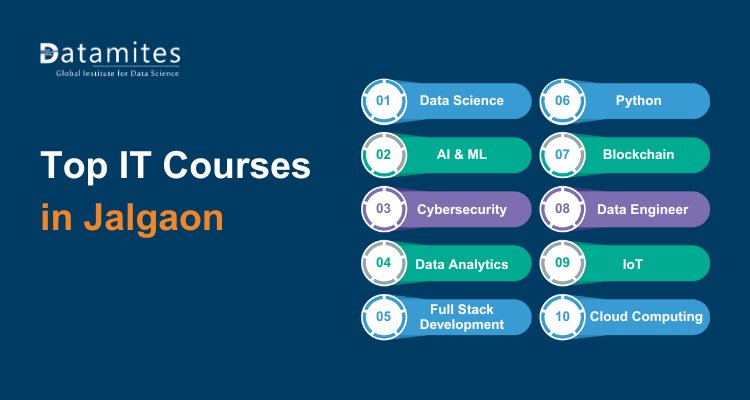Understanding the Role that Data Analytics plays in Manufacturing

There is no point in arguing that manufacturing is the real driving force behind the global economy. We wouldn’t have access to the goods and services we use and enjoy if manufacturing didn’t exist. Despite being fairly sluggish, the manufacturing sector has also come to wholeheartedly welcome data analytics into its functioning. We count on the manufacturing sector to get our cherished products to us, from the automobiles we drive to the phones we use to communicate, everything needs to be manufactured!
The rapid advancement of artificial intelligence, advanced analytics, robotics, and new IoT technologies empower producers to receive, store, process and utilize data in their daily operations. However, the most significant development in the manufacturing sector in recent years has been the incorporation of data analytics into the manufacturing process, which has improved manufacturers’ production capacities profoundly.
How is Data Analytics Driving the Manufacturing Industry?
Technology is the first of the five manufacturing trends for 2023, according to a study by Deloitte on the “2023 Marketing Industry Outlook,” and manufacturers have expedited the adoption of innovative technologies during the past few years. Both businesses that pushed their digitalization during the pandemic and those with a higher level of digital maturity had stronger resilience. The requisite agility can be developed with further investments in cutting-edge manufacturing technologies.
Data Analytics being the careful study of information by computation is all about finding constructive patterns in the data, understanding it, and applying it to make wise decisions. A data-driven revolution in the manufacturing sector is imminent. In order to increase efficiency, create innovative consumer experiences, and lessen their negative social and environmental impacts, businesses are working together in hyperconnected value networks.
Data analytics help locate corrective actions easily thereby helping businesses achieve greater heights. Indeed modern manufacturing relies heavily on data analytics given the real-time insights, process optimization, proactive maintenance, and other benefits that it offers. Since the industrial revolution changed the way we think about manufacturing, leading companies have been trying to find new ways to ease the process even more. To do this, they are decided to outsource their manufacturing operations to more productive offshore facilities, and producers are expediting their production processes to lower human error rates and raise quality.
Refer to the article: How is Data Analytics Influencing the Educational Sector?
This blog will give you an insight into the numerous ways that data analytics help manufacturers’ jobs easier.
- Data Analytics in Producing High-Quality Products
In the past, releasing a new product design on the market required a lot of trial and error. Because of their subpar ergonomics and design, the initial making of product designs was frequently met with a bland response from consumers.
But that’s not the case today, manufacturers may now test the practicality and efficacy of their ideas without ever creating a physical prototype thanks to data analytics. Modern data analytics technologies use artificial intelligence and machine learning to develop computerized product designs and assist manufacturers in putting them to the test.
- Data Analytics in Supporting Automated Manufacturing
The development of automated manufacturing is one of the key ways in which data analytics is helping industries. In many industries today, the manufacturing process requires little to no interaction with humans; everything from the delivery of raw materials to the quality inspection of the finished goods is carried out by sophisticated algorithms that are fueled by data analytics.
Manufacturing companies can avoid problems caused by human mistakes thanks to the tight integration of data analytics. According to studies, human error accounts for 23% of unscheduled idle time in the production process! Utilizing automated manufacturing systems, manufacturers can reduce unexpected downtime by analyzing the analytics algorithms, thereby finding probable anomalies in the equipment or production process and performing preventive maintenance.
- Data Analytics for Cutting Costs
Manufacturers today may quickly find chances to reduce costs by using sophisticated analytics technologies. Multiple, unconnected devices sharing data leads to swarm intelligence, a typical IoT phenomenon. By utilizing this technology, your production can save costs through increased safety and efficiency, predictive maintenance, and net-new revenue from value-added services.
Additionally, data might reveal places that are ready for automation. Automation can increase production and decrease waste, which can result in cost savings and improved customer satisfaction. At the end of the day, real-time analytics provide you with total visibility into your manufacturing operations and highlight critical cost-saving opportunities you might have overlooked.
- Data Analytics for Strong Product Management
Throughout the entire production process, choosing how much to produce is arguably one of the most important decisions. Overestimating the demand may result in overproduction, which could end up costing the business millions of dollars. On the other side, failing to anticipate market demand may result in late deliveries of goods and services, damaging the company’s reputation. To maximize their profit, manufacturers must therefore properly predict consumer demand.
With the aid of data modeling and predictive analytics, producers can meet market demand without wasting resources by creating accurate demand forecasts for the future using previous demand data and simulating future market situations.
- Data Analytics to Keep Cyberthreats and Data Breaches at Bay
The prevention of phishing scams, employee training, upkeep of antivirus software, and other best practices are all relevant when it comes to cyberattacks. Manufacturers must take these important elements into account, especially in light of the systematic collection of massive volumes of data. In order to safeguard data against misuse, an enterprise-grade data security solution should be implemented.
- Data Analytics in pursuit of Performance Excellence
With advanced analytics, a manufacturing plant may set targets, empower employees to manage their own performance, find best practices, and create formal work processes using data-driven insights. By providing front-line staff with digital productivity tools and dynamic work instructions, it can also enable them to enhance training, communication, and collaboration.
Read this article: Data Science Vs Data Analytics
- Data Analytics for Predictive Maintenance
Advanced Analytics-derived predictive and prescriptive insights can raise operational dependability, product quality, and safety while lowering maintenance costs. ML can assist businesses in gaining real-time and historical insights into asset health, diagnosing root causes of failures, detecting anomalies, and receiving early warnings of conditions out of tolerance, in addition to standard applications like empowering intelligent scheduling, reducing meltdowns and equity damage, and optimizing parts and tooling replacement processes. Consequently, this can be a huge source of savings for the business to cut downtime expenses.
- Data Analytics for Increased Predictability and Productivity
In modern production, people and machines coexist, and each machine and process must run well for the business to succeed. Your entire production can be thrown off by one mistake, which will hurt your financial situation. You’ll get ongoing notifications and remote monitoring with the proper analytical tools to guarantee uninterrupted performance.
With predictive maintenance, IoT-enabled sensors and edge technologies will alert your team if there is a problem before it affects productivity, assisting your employees in changing from problem-finders to problem-solvers.
- Data Analytics for Increased Consumer Satisfaction
Monitoring products after purchase aids manufacturers in understanding consumer feedback and lowering condition-based monitoring. It is feasible to prevent recollection problems with the use of big data analytics. Consumer satisfaction as well as improved product and brand reputation come consecutively.
- Data Analytics for Superior Service Delivery
Demand is at an all-time high, and consumer expectations have changed in recent years. Manufacturing firms must be able to generate high yields of profit and optimize their supply chain operations. Data analytics facilitates just that.
Based on market fluctuations, seasonality, and other such factors, marketers can estimate client demand and future projections almost instantaneously. In order to enhance the services and outputs, intelligent tools will trawl through data, assess significant findings and statistics, and then provide invaluable insights. Data analytics helps marketers in improving their estimates and planning by giving them a deeper understanding of how long each project takes, how much it costs, and what materials are required.
Also refer this article: Support Vector Machine Algorithm (SVM) – Understanding Kernel Trick
How does the Future look for Data Analytics in the Manufacturing Industry?
In light of the technological outburst, it makes sense that businesses seeking to compete in saturated marketplaces should still be hesitant about change. The race to develop a sustainable, upheaval data analytics strategy is necessary though, as data and analytics acumen becomes not just one item in a laundry list of strategic strategies but the key difference in modern business.
Manufacturers are bracing themselves as a result of the considerable change in customer demand in recent years. Manufacturing analytics is now essential for maintaining product quality, increasing performance with high-profit yields, lowering costs, and optimizing supply chains. According to reports, more than 83% of executives today say they are leveraging data to give themselves a competitive advantage. It goes without saying that companies which haven’t developed a solid data analytics strategy run the danger of falling behind.
Industry 4.0 is already in its intended market. It is not a matter of whether or not businesses will use analytics. It is unclear when they will implement business intelligence. Because analytics is the key to achieving Industry 4.0’s full potential because, without it, the information gathered by intelligent IoT devices is essentially meaningless. Companies are gaining ground on their rivals faster than the adoption rate increases.
Estimated at $5.9 billion in the year 2016, the global market for manufacturing analytics is expected to grow to $28.5 billion by 2026. There is no end to the potential for advancements as manufacturers increase their understanding using the available data analytics. Although the initial step toward utilizing data analytics can be intimidating, the trip is well worth it. The future of the manufacturing industry is inevitably data-driven and data analytics is deemed to be a significant component of it.
Also read this article: How much will be the Data Analytics Course Fees in Bangalore?
Conclusion
The fourth industrial revolution is currently sweeping many sectors of the global economy, and the manufacturing sector is no exception. This revolution is being fueled by the power of data analytics and digital infrastructure. The advantages of data analytics in manufacturing allow contemporary manufacturers to improve their capabilities to produce higher quality and increased efficiency in the production process.
If you’re interested in pursuing a career in data analytics, DataMites provides courses in association with NASSCOM, JainX, and IABAC, three organizations with a strong international reputations. In addition to data analytics, we also provide training in data science, artificial intelligence, machine learning, Python and more! You’ll possess the skills and knowledge required to assist actual company planning and decision-making if you get a DataMites data analytics certification.
Certified Data Analyst Course
Exploratory Data Analysis







